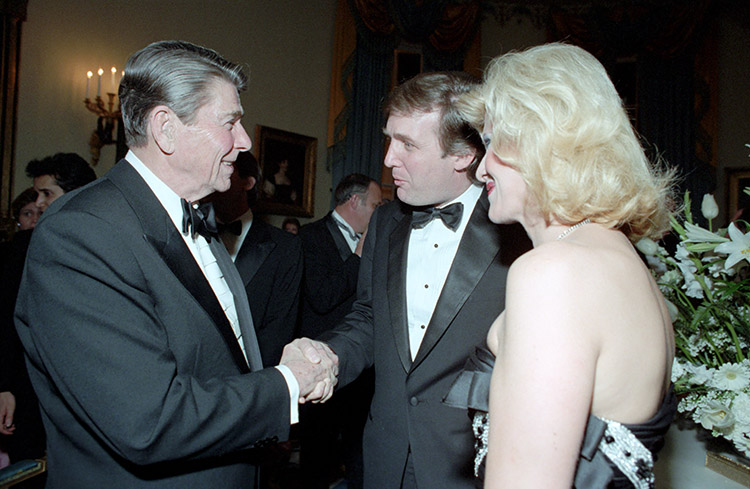Nicholas Confessore is one of the amazingly talented and dedicated group of New York Times political reporters who’ve covered the 2016 American Presidential election better than I think any national election in this country has ever been covered by any news organization. In “How the G.O.P. Elite Lost Its Voters to Donald Trump,” Confessore writes about the Republican power structure having the candidate selection process torn from its grip. There’s a lot of good stuff about how the party lost touch with its working-class base, but I think the article–like almost all articles this odd season–misses one valuable point: Donald Trump is essentially a modern Republican, the substance the same even if the style is markedly different.
Trump uses unvarnished, hateful language, substituting dog bites for dog whistles, and his wedge issues are married to populism more than social issues, but he’s still a wealthy person trying to pick the pockets of lower-income people and shift the money to those who already have plenty. His tax schemes and health-care plans assuredly would send the U.S. in that direction. Trump may seem like a different thing because he wasn’t anointed from on high, but he’s the new boss, same as the old boss.
From Confessore:
As the Republican Party collapses on itself, conservative leaders struggling to explain Mr. Trump’s appeal have largely seized on his unique qualities as a candidate: his larger-than-life persona, his ability to dominate the airwaves, his tough-sounding if unrealistic policy proposals. Others ascribe Mr. Trump’s rise to the xenophobia and racism of Americans angry over their declining power.
But the story is also one of a party elite that abandoned its most faithful voters, blue-collar white Americans, who faced economic pain and uncertainty over the past decade as the party’s donors, lawmakers and lobbyists prospered. From mobile home parks in Florida and factory towns in Michigan, to Virginia’s coal country, where as many as one in five adults live on Social Security disability payments, disenchanted Republican voters lost faith in the agenda of their party’s leaders.In dozens of interviews, Republican lawmakers, donors, activists and others described — some with resignation, some with anger — a party that paved the way for a Trump-like figure to steal its base, as it lost touch with less affluent voters and misunderstood their growing anguish.
“This is absolutely a crisis for the party elite — and beyond the party elite, for elected officials, and for the way people have been raised as Republicans in the power structure for a generation,” said Ari Fleischer, who served as press secretary for President George W. Bush. “If Donald Trump wins, he will change what it means to be a Republican.”•
Tags: Donald Trump, Nicholas Confessore

